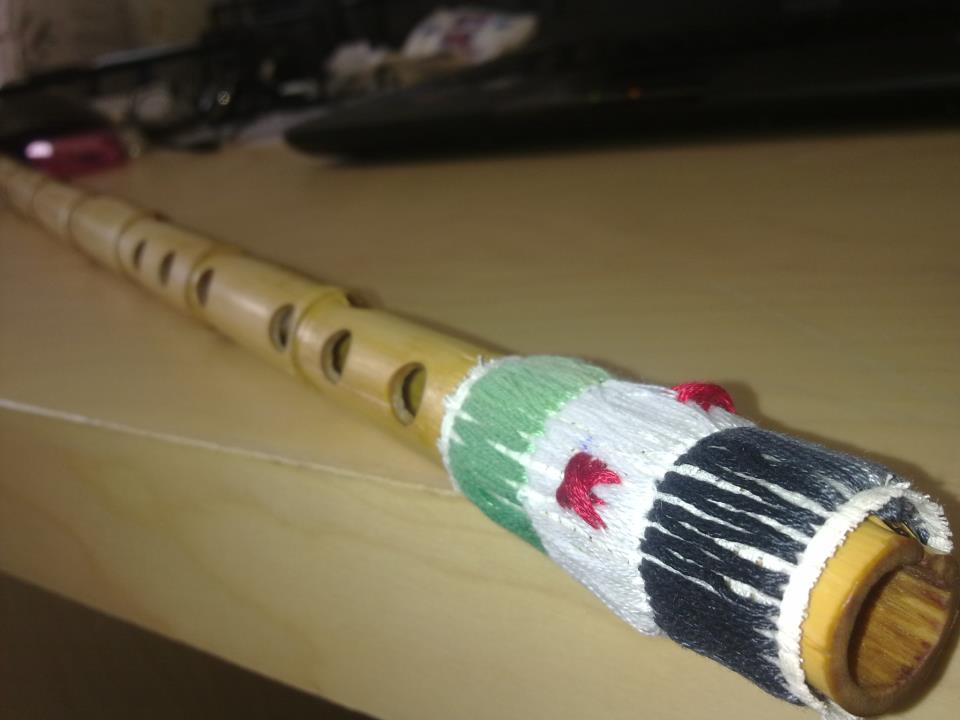Busking in Gaziantep

Ahmad, a refugee from the Syrian city of Aleppo, plays the flute in the streets of the Turkish city in an effort to make ends meet.
Omar Youssef (Gaziantep – Turkey)
The sad melody of the flute fills you with nostalgia as you head to work in the morning and draws you in as you make your way back home at the end of the day.
When you’re at home you find yourself unable to stop listening as it passes by in the street below.

Ahmad is in his forties and he used to play the flute in his neighbourhood of Al-Nayrab in the Syrian city of Aleppo.
But as Syria’s armed conflict continued, Ahmad’s music was drowned out by the constant noise of bombs, explosions, and gunfire. Aleppo has seen some of the fiercest and most devastating fighting of the Syrian civil war.
The conflict, which began in 2011, prompted him to pack several of his flutes into a suitcase and flee across the border to the Turkish city of Gaziantep.
Today Ahmad roams the streets of the city playing his music in return for small change from passers-by.
People give him a few Turkish liras and children throw coins down to him from the terraces of their homes.
Playing the flute can be difficult, he says. You have to position the instrument at the side of your mouth and place your fingers on the six holes which correspond to the notes.
“People think that playing the flute is easy and all you have to do is blow hard,” said Ahmad. “It actually needs a lot of training and skill. The love of music alone is not enough.”
We had a go at playing Ahmad’s flute but it was too difficult.
Ahmad first learnt to play the flute at the Shabiba Institute for Music in Aleppo and then began playing in different bands.
“I learnt how to read music and how to play well,” he told Damascus Bureau. “I soon began to accompany many of the local vocalists and singers in the city.”
But playing in a band did not pay enough to cover his living expenses.
“I was not paid enough working with the singers,” he said. “They gave me a little and kept thousands of [Syrian] pounds for themselves.”
To supplement his income, Ahmad decided to start making flutes himself and selling them to music shops.
He used to go to Lebanon to collect the materials.
“I gathered the reeds that grow plentifully on the coastal road between Tripoli and Beirut and took them back to Aleppo to make flutes with,” he said. “I did not tell anybody my secret. If the border police asked me, I told them I was using them for the trellises in my home.
Flutes differ according to the wood they are made of and this gives each one a distinctive sound.
Ahmad also makes smaller flutes for children.
They cost between ten and 25 liras each (around 10 US dollars), but Ahmad only sells a few.
He does not have any plans for a future in Gaziantep, but he is happy to have had an offer from Aleppan singers who have settled here to join their small band.
At the end of our conversation, Ahmad took out his flute and played a beautiful traditional song by the famous Iraqi singer Nathem al-Ghazali. The music took us back to Aleppo, the city’s nights, and its parties.
When he had finished playing we went our separate ways. Ahmad walked off through the narrow streets and his music filled the air. A local woman pointed to him and said something in Turkish that he did not understand. It didn’t matter though, as long as she waved the lira in her hand. He caught it in the air with a smile, but his music was still filled with sadness.
